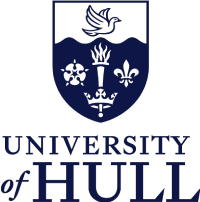The diabetic foot is one of the most debilitating comorbidities of diabetes. It is caused by impaired tissue repair, which leads to limb dysfunction and ultimately amputation. Surgical interventions are commonly utilised but are not suitable for all patients, which makes diabetic foot an unresolved medical emergency.
In this project we aim to: 1) utilise RNA-sequence data from animal models of diabetes and wound tissue explanted from diabetes foot patients to identify new disease mechanisms; 2) investigate novel molecular mechanisms of impaired wound repair in primary human cell cultures modelling diabetes (dermal endothelial cells for revascularisation studies and dermal fibroblasts/epithelial cells for repair studies); 3) test the effect of pharmacological and dietary interventions on wound healing using animal models of diabetes and human wound tissue cultures ex vivo.
The successful candidate will join the internationally renowned Hull York Medical School, embedded in a £28 million state-of-the-art Health Campus at the University of Hull, with opportunities to work with biomedical scientists at the Daisy Research facilities of Castle Hill hospital and industrial collaborators on wound healing research.
The supervisors have extensive experience of working with experimental models of tissue regeneration, biomedical research and drug discovery platforms, and industrial partnering and commercialisation.
For informal inquiries, please contact [Email Address Removed]
About the research cluster / about the research environment
Diabetes is a multifaceted disease that reduces life quality and expectancy through a plethora of health complications and comorbidities. As the number of people living with diabetes is increasing, the societal impact of this disease is predicted to rise significantly in the next decades. The complexity of diabetes requires a multidisciplinary research approach to understand its mechanisms and deliver novel therapeutic tools.
This project will be part of a PhD cluster that will bring together a multidisciplinary team from five different Schools within the University of Hull to investigate four fundamental aspects of diabetes: 1) the effect on blood clotting and vascular health; 2) the association with kidney diseases; 3) the impairment of wound healing leading to peripheral limb diseases; 4) the combined effect of diabetes and dementia on life quality and disease progression.
As part of the cluster, these studentships will be embedded in a multidisciplinary and highly collaborative network. The students will participate in several cluster-wide activities, such as cluster-wide meetings with shared research updates, biweekly seminars, regular sessions on career progression and opportunities, an online community providing research news and local updates via monthly emails and via a dedicated webpage, and regular social activities for both students and supervisors. For informal inquiries regarding the cluster, please contact [Email Address Removed]
Submission of thesis
Submission of your final thesis is expected within three years and three months from the start of your PhD scholarship for full-time and within five years and six months if studying part-time.
Eligibility and entry requirements
Applicants should have a minimum 2:1 degree in a biomedical subject. A taught MSc or Masters by Research in a relevant subject or relevant laboratory experience would be an advantage.
International applicants
This opportunity comes with a Home fee waiver only, which will not cover the full International fee. You will therefore need to pay the difference between the Home fee and the International fee and will need to provide evidence that you have sufficient funds to cover this.
How to apply
Applications are via the University of Hull webpage
Closing date for applications
10 February 2022

 Continue with Facebook
Continue with Facebook



